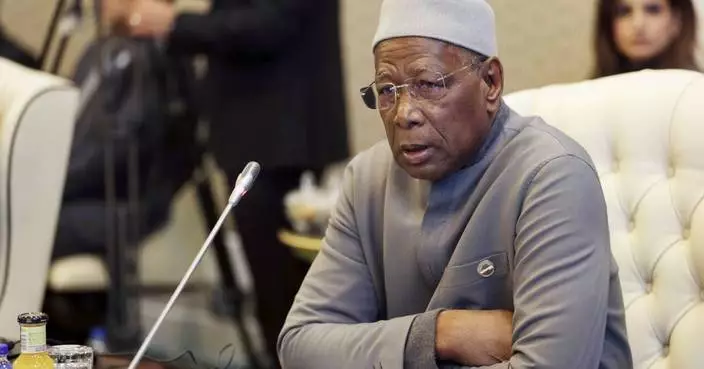The U.N. mission in Libya said Monday that the country’s warring sides had agreed to turn a shaky cease-fire into a formal deal, stirring modest hopes after weeks of sporadic violence that derailed negotiations.
As the latest round of U.N.-mediated talks between rival military leaders wrapped up in Geneva, both sides reached a draft deal “to facilitate the safe return of civilians to their areas,” according to a U.N. statement.
The return of thousands of displaced civilians will be monitored by military representatives in Geneva with support from the U.N. mission in Libya.
The delegates negotiating on behalf of Libya’s rival administrations must now send the draft for approval to their respective leaders who have the power to halt the fighting, a prospect that faces further obstacles. The representatives promised to reconvene in Geneva next month to hammer out details of the deal’s implementation.
Monday's apparent breakthrough came days after eastern-based forces under the command of Khalifa Hifter escalated their attacks on the capital, Tripoli, which is held by a rival U.N.-backed government. The attacks hit Tripoli's civilian seaport, narrowly missing a highly explosive liquefied petroleum gas tanker and prompting the Tripoli administration to pull out of talks. The negotiations resumed days later, with expectations for an agreement low.
A key sticking point throughout the talks has been the disarmament of fierce militias defending the capital against Hifter's assault. Officials from Libya's Tripoli government expressed willingness to demobilize militias at the latest Human Rights Council session in Geneva on Monday. But it remains unclear whether the administration has the power to rein in the scores of disparate militias.
Tripoli “is not opposed to disbanding militias,” said Mohamed Taher Siala, the U.N.-backed government's foreign minister, while addressing reporters in Geneva. “There are unlawful militias who abduct people and jeopardize their lives.”
The current cease-fire was brokered in January by Russia and Turkey, which back opposite sides in the conflict. But Libyan leaders never signed a pledge, let alone met face to face.
A high-profile international summit followed in Berlin, where world powers with interests in the oil-rich North African country promised to push for the cease-fire and uphold a widely flouted arms embargo.
Developments on the ground have repeatedly defied diplomatic efforts to resolve the crisis. Foreign backers keep pouring weapons into the country, the U.N. alleges. Clashes continue around the capital, as each side accuses the other of violating the cease-fire.
The latest round of fighting in Libya started last spring, when Hifter launched his assault on the capital in a bid to wrest power from the U.N.-backed government. The siege has killed thousands of people, and displaced over 150,000, according to the U.N.
The United Arab Emirates and Egypt, as well as France and Russia, support Hifter's self-styled Libyan Arab Armed Forces. The embattled Tripoli administration, which controls just a shrinking corner of western Libya, has increasingly relied on Turkey for military aid.
In the latest twist of the nine-year conflict, Turkey, which has long trained and funded opposition fighters in Syria, has started airlifting hundreds of them over to support the Tripoli-based government.
Siala, the Tripoli foreign minister, acknowledged for the first time on Monday the deployment of Syrian fighters to the front lines in western Libya, a contentious subject that for months had been shrouded in rumor and secrecy. Dozens of the fighters have links to extremist groups such as al-Qaida and the Islamic State group.
“There are some Syrians” repelling Hifter's offensive, he said. “They have Turkish nationalities and are carrying Turkish passports.”
Turkey's offers of citizenship to Syrian recruits has helped entice them to fight in Libya. This way, experts say, Turkey conveniently avoids risks to its own forces while establishing a sphere of influence in the eastern Mediterranean and securing rights to offshore oil and gas exploration.
In a speech last week, Turkish President Recep Tayyip Erdogan also broke his silence on the presence of Syrian opposition fighters in Libya. He added that Turkey had suffered “a few” fatalities in Libya, but did not specify whether they were among Turkish or Syrian fighters.
—-
Associated Press writer Suzan Fraser in Ankara contributed to this report.
Forced to hide her true self, Joe Horras’ transgender daughter struggled with depression and anxiety until three years ago, when she began to take medication to block the onset of puberty. The gender-affirming treatment helped the now-16-year-old find happiness again, her father said.
A decision by the U.S. Supreme Court late Monday allowing Idaho to enforce its ban on such care for minors could jeopardize her wellbeing once again. Horras is scrambling to figure out next steps and is considering leaving Idaho, where he's lived his whole life, to move to another state.
"It would be devastating for her," Horras, who lives in Boise, told The Associated Press. “If she doesn’t have access to that, it will damage her mental health."
Horras is among the Idaho parents desperate to find solutions after their trans children lost access to the gender-affirming care they were receiving. The U.S. Supreme Court's decision allows the state to put in place a 2023 law that subjects physicians to up to 10 years in prison if they provide hormones, puberty blockers or other gender-affirming care to people under age 18. A federal judge in Idaho had previously blocked the law in its entirety.
The ruling will hold while lawsuits against the law proceed through the lower courts, although the two transgender teens who sued to challenge the law will still be able to obtain care.
At least 24 states have adopted bans on gender-affirming care for minors in recent years, and most of them face legal challenges. Twenty of those states besides Idaho are currently enforcing the bans.
Monday’s ruling was the first time the U.S. Supreme Court waded into the issue. The court’s 6-3 ruling steered clear of whether the ban itself is constitutional. Instead, the justices went deep into whether it’s appropriate to put enforcement of a law on hold for everyone, or just those who sue over it, while it works its way through the courts.
In his concurring opinion, Justice Neil Gorsuch said “lower courts would be wise to take heed” and limit use of “universal injunctions” blocking all enforcement of laws that face legal challenges. In a dissent, Justice Ketanji Brown Jackson said the court should not decide the fate of those actions without reading legal briefs and hearing arguments on the issue.
Rights groups in Idaho are supporting families to make sure they're aware the measure has taken effect. The American Civil Liberties Union of Idaho said it plans to hold a virtual event over Zoom with licensed counselors and legal experts to help people process the shock and answer any questions they may have about the law.
“Yesterday was really just an outpouring of fear, questions, people trying to figure out how this is going to affect them personally,” said Jenna Damron, the group's advocacy fellow. “Getting information out quickly that is accurate is kind of our first priority.”
Paul Southwick, legal director for ACLU of Idaho, said the group wants families to know what their options are.
“Gender-affirming medical care is now immediately illegal for minors in the state of Idaho. However, care remains legal for adults, and it’s also legal for minors to seek gender-affirming medical care out of state,” he said.
In Boise, Horras' 16-year-old daughter wears an estrogen patch and receives estrogen injections every six months. Her last shot was in December and Horras now has two months to find a new out-of-state provider who can continue administering the medication. The situation has left him feeling scared, he said, and angry toward the state politicians who passed the law last year.
“It's cruel,” he said.
Advocates, meanwhile, worry that lower-income families won't be able to afford to travel across state lines for care. Arya Shae Walker, a transgender man and activist in the small city of Twin Falls in rural southern Idaho, said he was concerned that people would alter the doses of their current prescriptions in order to make them last longer. His advocacy group has already taken down information on its website on gender-affirming care providers for young people in the area out of concern of potential legal consequences.
The broader issue of bans on gender-affirming care for minors could eventually be before the U.S. Supreme Court again. Last year, a ban on gender-affirming care for minors in Arkansas was shot down by a federal judge, while those in Kentucky and Tennessee were allowed to be enforced by an appeals court after being put on hold by lower-court judges. Montana’s law is not being enforced because of a ruling from a state judge.
Laws barring transgender youth from playing on sports teams that align with their gender identity are also being challenged across the country. An appeals court on Tuesday ruled that West Virginia’s transgender sports ban violates the rights of a teen athlete under Title IX, the federal civil rights law that prohibits sex-based discrimination in schools. Hours later, an Ohio law that bars transgender girls from girls scholastic sports competitions was put on hold by a judge. Set to take effect next week, the law also bans gender-affirming care for transgender youth.
Those who support the bans say they want to protect children and have concerns about the treatments themselves.
Gender-affirming care for youth is supported by major medical organizations, including the American Medical Association, the American Academy of Pediatrics and the American Psychiatric Association. However, England is limiting the ability of people younger than 16 to begin a medical gender transition.
The National Health Service England recently cemented a policy first issued on an interim basis almost a year ago that sets a minimum age at which puberty blockers can be started, along with other requirements. NHS England says there is not enough evidence about their long-term effects, including “sexual, cognitive or broader developmental outcomes.”
Medical professionals define gender dysphoria as psychological distress experienced by those whose gender expression does not match their gender identity. Experts say gender-affirming therapy can lead to lower rates of depression, suicidal thoughts and suicide attempts among transgender people.
Chelsea Gaona-Lincoln, executive director of Idaho-based advocacy group Add The Words, said she's anticipating “a pretty horrendous ripple effect.” But seeing her community uniting in support has given her a glimmer of hope.
“There are people coming together, and it’s so important, for especially our youth, to feel seen and affirmed as they are," she said.
Southwick, the legal director of ACLU of Idaho, said the 9th U.S. Circuit Court of Appeals is expected to hold a hearing this summer on its lawsuit challenging the law.
Associated Press writer Geoff Mulvihill in Cherry Hill, New Jersey, contributed.
This story was first published on April 16, 2024. It was updated on April 18, 2024, to make clear that the 20 states enforcing bans on gender-affirming care for minors are in addition to Idaho and all are among the 24 that have passed laws imposing the bans.
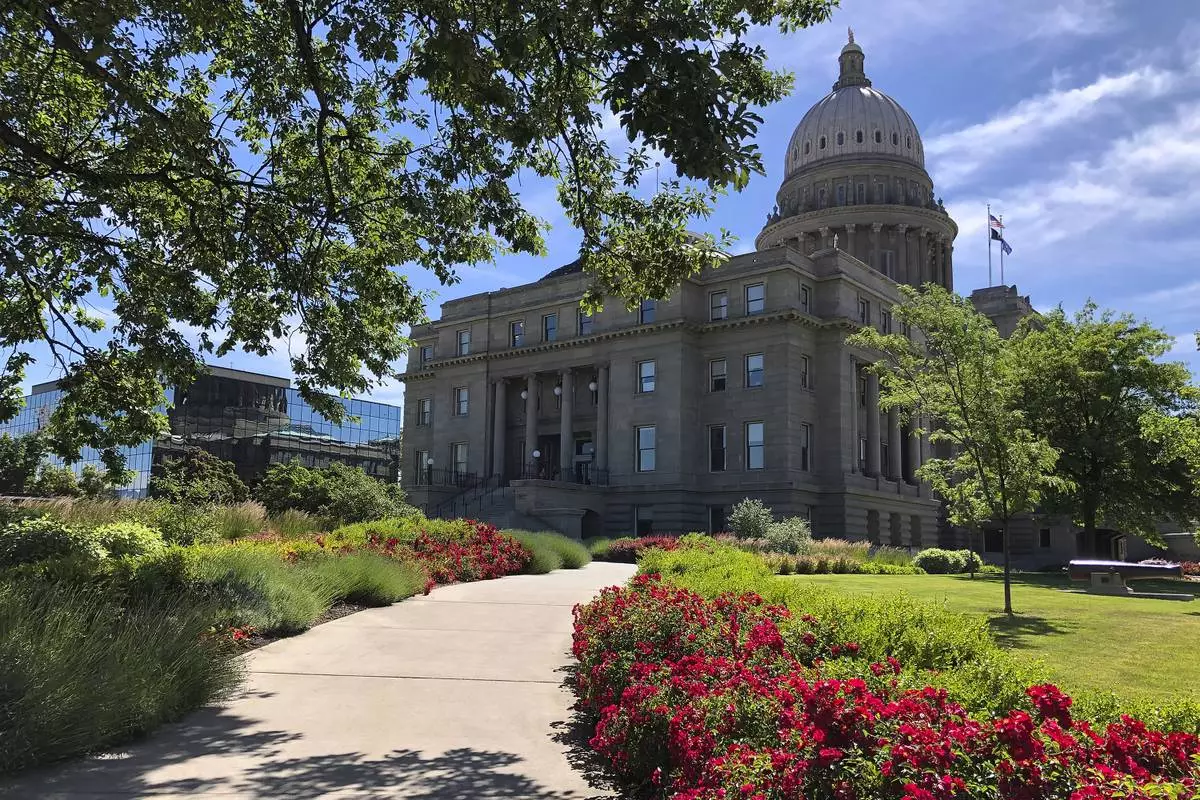
FILE - The Idaho State Capitol in Boise, Idaho, is seen on June 13, 2019. The U.S. Supreme Court's decision on Monday, April 15, 2024, allows the state to put in place a 2023 law that subjects physicians to up to 10 years in prison if they provide hormones, puberty blockers or other gender-affirming care to people under age 18. A federal judge in Idaho had previously blocked the law in its entirety. (AP Photo/Keith Ridler, File)
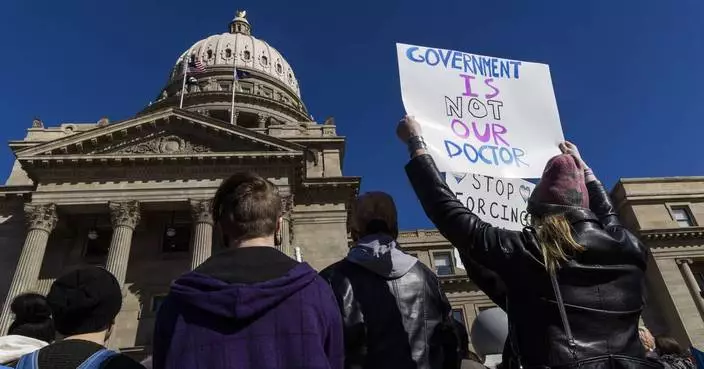
Idaho's ban on youth gender-affirming care has families desperately scrambling for solutions
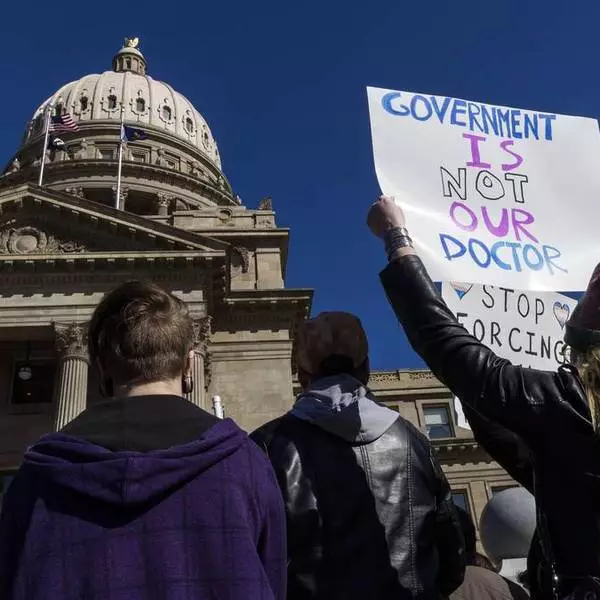
Idaho's ban on youth gender-affirming care has families desperately scrambling for solutions
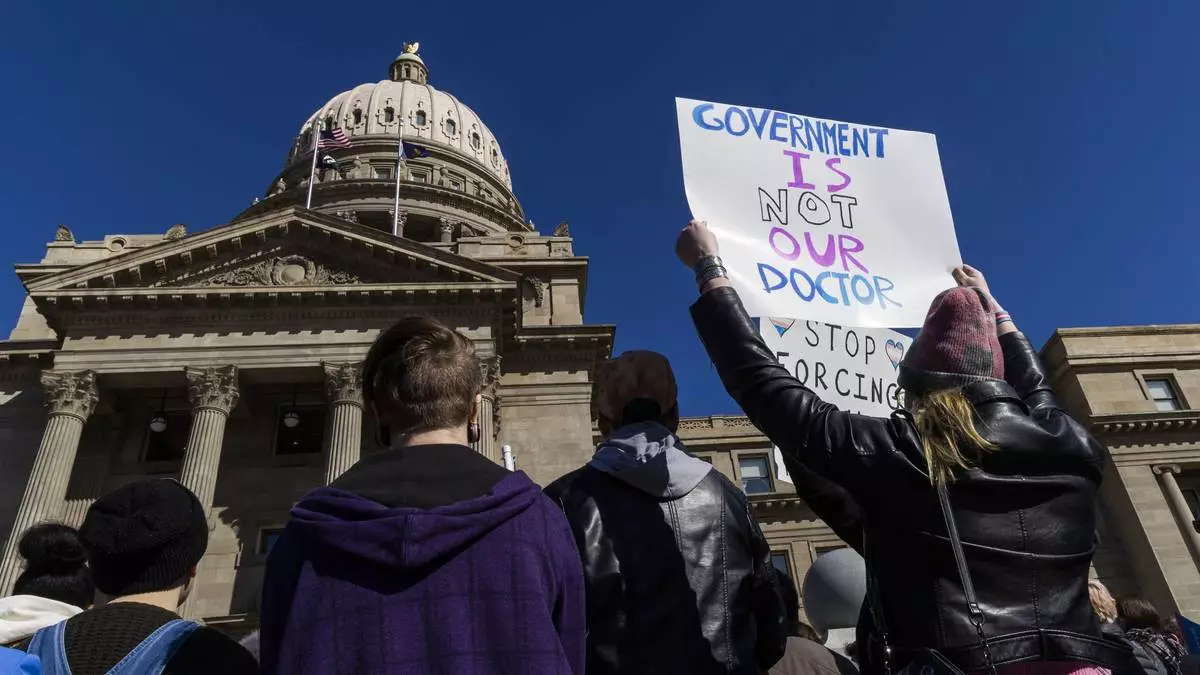
FILE - People gather in front of the Idaho Statehouse in opposition to anti-transgender legislation moving through an Idaho Republican congress, Friday, Feb. 24, 2023, in Boise, Idaho. The U.S. Supreme Court's decision on Monday, April 15, 2024, allows the state to put in place a 2023 law that subjects physicians to up to 10 years in prison if they provide hormones, puberty blockers or other gender-affirming care to people under age 18. A federal judge in Idaho had previously blocked the law in its entirety. (Darin Oswald/Idaho Statesman via AP, File)







